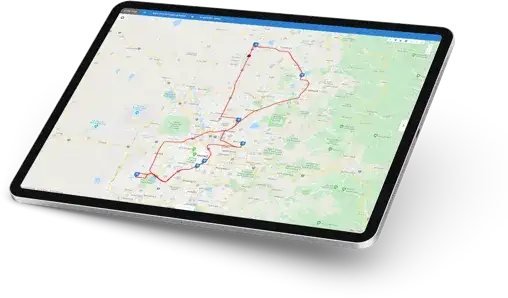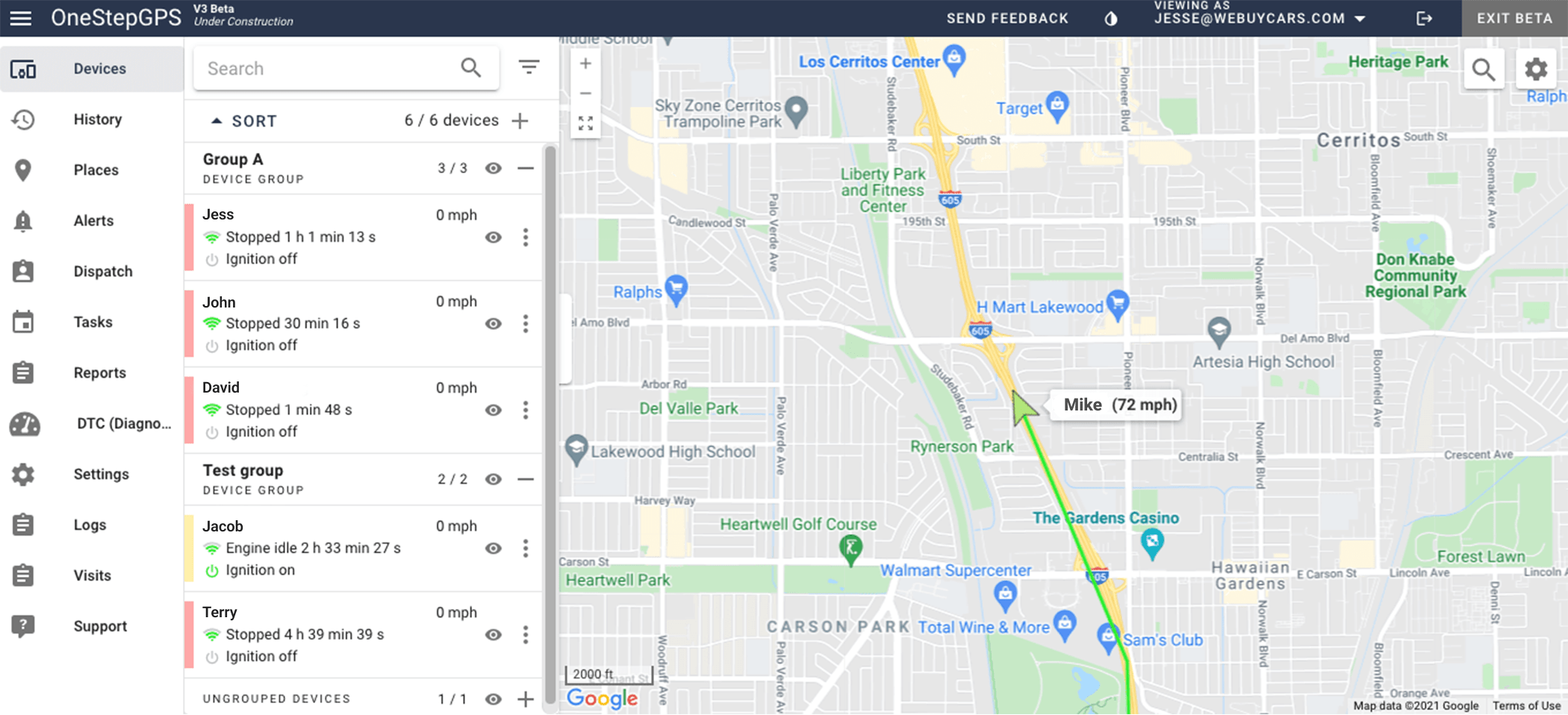How Will GPS Tracking Help Me To Make Data-Driven Decisions For My Fleet Management Strategies?
Published on June 5th, 2023
Fleet owners today increasingly rely on data to make informed decisions instead of just intuition to manage their vehicles. Today, a GPS tracking system makes data-driven decision-making more straightforward and efficient, ultimately improving safety and productivity.
Let’s explore how GPS tracking helps fleet owners make data-driven decisions and improve their overall fleet management strategies.
Benefits of GPS Fleet Tracking Systems
Adding GPS tracking to your fleet management system provides real-time visibility into assets, operations, and equipment in your fleet. This improves overall fleet efficiency and increases productivity, but that is only the beginning. With accurate data, fleet managers can develop strategies and make real-time decisions to support business processes and profitability.
Tracking Efficiency
A key benefit of GPS fleet tracking is real-time data on the location of vehicles. This is especially helpful for fleets that adhere to strict schedules or rely on timely deliveries. With GPS tracking, fleet owners can monitor the location of vehicles and make data-driven decisions about route optimization, delivery schedules, and more. GPS tracking technology provides fleet owners with data to identify speed violations and route deviations, reducing the risk of accidents and profit losses.
Asset Allocation Improvement
Continuous asset tracking ensures the right vehicles are moved to appropriate destinations to support just-in-time supply chain management. GPS fleet tracking supports the ongoing balance between vehicles standing idle and transport delays. Reduce wear and tear by balancing the use of fleet vehicles to reduce the maintenance they need.
Plus, a vehicle tracking solution lets you know if your equipment is overutilized. Is it time to acquire an additional vehicle? You’ll have data to help you decide.
Cost Reduction
A vehicle tracking solution monitors fuel consumption, idle time, and other metrics. Fleet owners use this information to make data-driven decisions to reduce costs. For example, reducing idle time and ensuring vehicles take the most fuel-efficient route saves on fuel costs.
Deter Unauthorized Use and Theft
GPS tracking allows you to monitor any unexpected movement, minimizing unauthorized use. Plus, the increased visibility deters theft and helps recover stolen vehicles more quickly.
Replacing a stolen vehicle causes downtime, creating a delay in project completion. GPS tracking system users find the reduction in thefts cascades into an increase in customer satisfaction.
Preventative Maintenance Schedules
Scheduling preventive maintenance for your fleet vehicles keeps the equipment running well with maintenance and service reminders. Alerts proactively schedule maintenance, which reduces breakdowns.
Without the correct data, it is challenging to coordinate the components of a preventive maintenance strategy. Fleet managers find it easier to organize mechanics, tools, replacement parts, and vehicles with accurate information.
Fleet Safety
GPS vehicle tracking improves fleet safety. Fleet owners use real-time data to monitor driver behaviors and identify risky driving, such as speeding, hard braking, or harsh acceleration.
This data allows fleet owners to make decisions to implement driver training programs to improve driving practices and encourage safe driving. Implementing driver training reduces the risk of accidents and lowers insurance premiums.
Simplify Administration Processes
GPS fleet management systems help streamline administrative tasks. Accurate mileage tracking integrates with automated expense reports, planning, route allocation, etc. Fleet management software powered by GPS tracking provides real-time data, reducing the need for manual data entry, reducing the risk of input errors, and simplifying administration tasks.
Customizable reports offer a detailed view of each aspect of the overall business, making it easy to see where costs are incurred and identify areas that need improvement.
Improved Customer Service
Finally, GPS tracking technology can help fleet owners enhance customer service. By providing real-time data on the location of their vehicles, fleet owners can monitor delivery times, track driver behavior and more, enabling them to respond quickly to urgent requests, handle customer complaints, and make informed decisions about deliveries.
Conclusion

GPS tracking is the ultimate solution for data-driven fleet management. From tracking efficiency and asset allocation improvement to cost reduction, deterring unauthorized use and theft, supporting preventative maintenance schedules, enhancing fleet safety, simplifying administration, and improving customer service, GPS tracking technology provides accurate, real-time data. Fleet owners make better, more informed, data-driven decisions.
By investing in GPS tracking solutions, fleet owners can simplify their management processes and increase their bottom line, ultimately improving their overall business operations.
 (888) 919-7536
(888) 919-7536


 Fleet Tracking
Fleet Tracking Trucking and ELD
Trucking and ELD Asset Tracking
Asset Tracking Battery Tracking
Battery Tracking





 Chat with us
Chat with us

